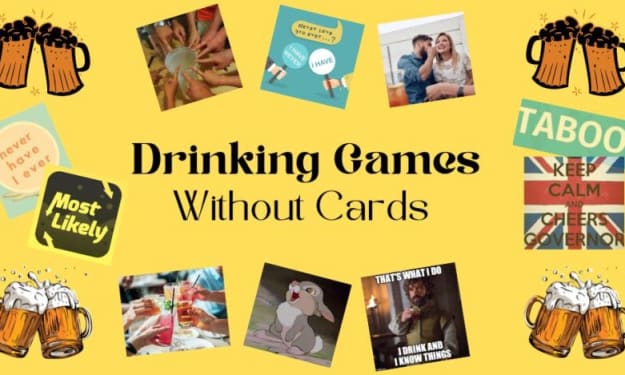
You might begin considering having sex for the first time as you get older. In addition, you might be curious about how it feels, how to manage any accompanying anxiety, and how to stay safe.
Having sex for the first time: what you should know
If you are considering having sex for the first time, you most likely have a lot of thoughts running through your head. You might be wondering if it will hurt or if your body will change. Continue reading to learn the answers to some of your questions about your first experience with sex.
What happens to your body when you have sex?
After your first sexual encounter, your body won't give off any obvious warning signs. No one will know you've had sex unless you or someone else tells them. You might exhale rapidly, perspire heavily, and get a flush while having sex.
The physical nature of sex is what causes these changes. Your vulva may swell during sex as a result of increased blood flow. Your body will return to normal after sex, just like it would after exercise. The hymen, a membrane in the vagina that can stretch or tear during physical activity, first-time sex, or other activities, is present at birth in the majority of women.
Your hymen may stretch during your first sexual experience, and if it ruptures, you may experience some bleeding. But first-time sex isn't always accompanied by bleeding. Before they ever have sex, a lot of people unintentionally break their hymen. If you're concerned about bleeding, you can avoid stains by lying down on a dark-coloured towel or piece of clothing.
Will it hurt?
The question of whether it will hurt dominates much of the anxiety that comes with having sex for the first time. There won't likely be any pain if you unwind, feel comfortable, and pay attention to your body. You might feel a little uneasy because this is a novel experience for you.
If you do experience pain, friction is probably what caused it. When there isn't enough vaginal lubrication to facilitate something entering your vagina, friction during penetrative sex happens.
Having a lot of foreplay can encourage the vagina to lubricate more. Lubricant can improve the comfort and pleasure of sexual activity.
Will I have an orgasm?

You might think that the first time you and your partner engage in sex will be as magical as it is frequently portrayed in movies. Your initial experience might not be nearly as seamless or choreographed, though.
A lot of people find their first experience to be awkward and uneasy. You two may be anxious on top of everything else. These kinds of conditions can make it challenging to have an orgasm.
This is entirely typical. In fact, having sex without an orgasm can be quite enjoyable and may help you and your partner become closer.
Can I get pregnant having sex for the first time?
There is a misconception that when you have sex for the first time, you cannot become pregnant. That is untrue. You can become pregnant if you have sex if your period has already begun.
Every time you have sexual contact, if you don't want to get pregnant, you should use a birth control method.
First-time sex: ways to reduce anxiety
You might experience anxiety if you're having sex for the first time. This is typical and entirely acceptable. You have a lot of options for overcoming this anxiety.
Right partner
According to some studies, having sex with someone you trust and with whom you have a stable relationship increases your chances of experiencing both psychological and physical satisfaction.
Being with a trusted companion can make you feel safer and more in charge of the circumstance.
Cozy place
Plan to have sex in a place that makes you feel at ease if you want to but are nervous about it. It might be challenging to pay attention to what's happening and to enjoy what's happening in a strange or uncomfortable environment.
Foreplay
It's fairly typical to feel nervous before your first sexual experience. But foreplay might help you feel less anxious. A lot of kissing and touching occurs during foreplay, which can make you more at ease in both your own and your partner's bodies.
Take it slow
Trying to hasten sex in order to advance to the next stage can cause a lot of anxiety. You might find yourself contemplating your current actions and your next course of action. If so, take a moment to relax and concentrate on the here and now, allowing events to unfold naturally.
Some individuals are eager to experience orgasm. Sex can be a more laid-back and enjoyable experience if you take your time and enjoy the journey.
Try again later
The first time is frequently less than ideal. But that does not imply that sex will always be harmful. An experience that falls short of your expectations can be caused by a variety of factors.
You can always give it another go at a later time when you feel more at ease. You're not required to promise a subsequent performance, either. The best time to have sex is not just when your partner wants you to, but also when you are certain that you want it.
First-time sex: safety first!

If you're thinking about having sex for the first time, you should be aware of precautions to take. Sexual activity without protection can spread diseases. It may also result in an unintended pregnancy.
Avoiding STIs
If you don't wear protection when you have sex, your risk of getting an infection is much higher. STIs, which are sexually transmitted infections, include:
- Chlamydia
- HIV/AIDS
- Hepatitis B and C
- Genital herpes
- Syphilis
- Gonorrhea
While some of these illnesses can be treated with antibiotics, others are incurable and can have negative effects on one's health. Although there is no treatment for HIV, there are drugs that can almost completely suppress the virus.
If HIV is not treated, it can progress to an incurable disease called AIDS. When having sexual contact, using condoms will significantly lower your risk of getting a STI.
Contraception
If you don't intend to become pregnant, you should use contraceptive methods to lessen your chances. You can choose barrier techniques like caps, diaphragms, or condoms.
They prevent sperm from getting to the egg. Other methods, such as the birth control pill, change your hormones to prevent the release of an egg. Only condoms offer protection from both pregnancy and STIs, but it's important to keep in mind that no form of defence is 100% reliable.
It's completely normal to feel confused when having sex for the first time. It's normal to feel anxious, but finding the right partner, finding a comfortable setting, and moving slowly can help. Make sure to engage in safe sexual behaviour to prevent unintended pregnancies and STDs.
About the Creator
Elle
I love to write and share my stories with others! Writing is what gives me peace.






Comments
There are no comments for this story
Be the first to respond and start the conversation.